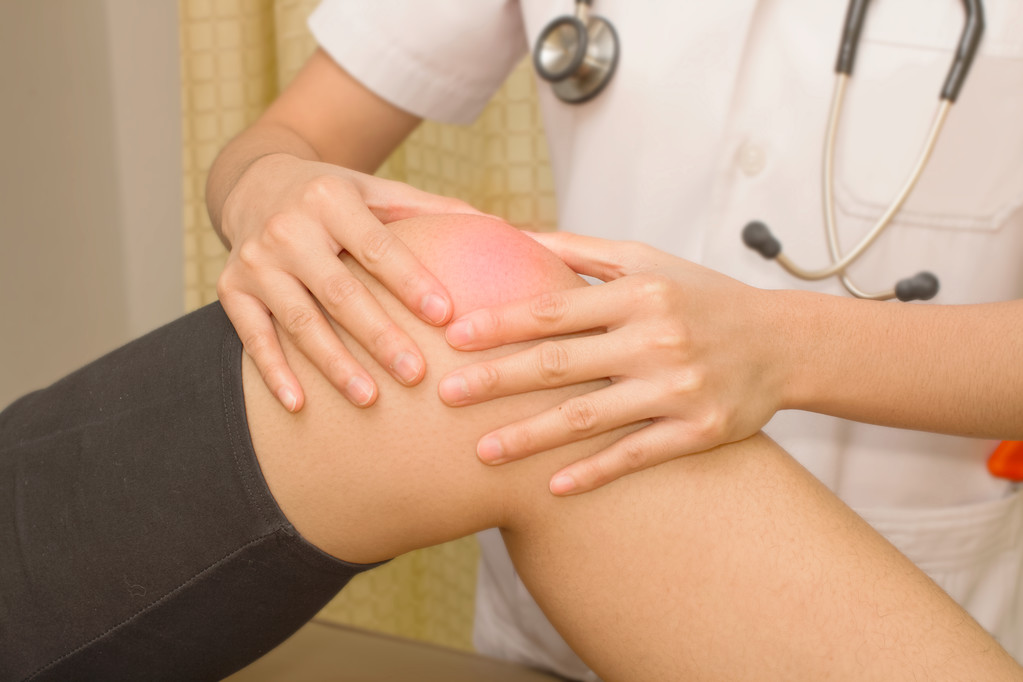Discover the fascinating role of relaxin in the body and its impact on joints and ligaments.
How Does Relaxin Impact Joints and Ligaments?
Are you feeling a little stressed? Need some chill vibes to relax? Well, have you ever heard of relaxin? It’s not just a cute-sounding name, it’s a hormone that can actually impact your joints and ligaments. Crazy, right? In this article, we’ll take a deep dive into the world of relaxin and explore its fascinating relationship with our bodies. So, kick back, relax, and let’s get started!

Understanding Relaxin: A Brief Overview
Before we can understand how relaxin affects our joints and ligaments, we need to know what it actually is. Relaxin is a hormone that plays a key role in pregnancy, helping to soften the ligaments and prepare the body for childbirth. But here’s the exciting part – relaxin isn’t just for expectant mothers! It turns out this hormone can impact all of us, regardless of whether we’re on the baby-making train or not.
Relaxin is like the unsung hero of our bodies, quietly working behind the scenes to keep our joints and ligaments functioning smoothly. It’s a natural lubricant that eases movement, making everything glide effortlessly. Imagine relaxin as the cool surfer dude of hormones, riding the waves of our bodies and ensuring that everything stays in perfect harmony.
The Role of Relaxin in the Human Body
Now, let’s talk about why relaxin is more than just a one-hit wonder for pregnant women. In the human body, relaxin acts as a natural lubricant, easing movement in our joints and ligaments. It’s like the cool surfer dude of hormones, helping everything glide smoothly and effortlessly. Pretty rad, huh?
But relaxin’s role doesn’t stop there. This hormone also has anti-inflammatory properties, which means it can help reduce pain and inflammation in our joints. It’s like having a personal superhero fighting off the villains of discomfort and stiffness. So even if you’re not planning on becoming a parent anytime soon, relaxin is still there, silently working to keep your body agile and pain-free.
Furthermore, relaxin has been found to have a positive impact on bone health. Studies have shown that this hormone can stimulate the growth of new bone cells and improve bone density. So not only does relaxin keep our joints and ligaments in check, but it also plays a crucial role in maintaining strong and healthy bones.
Relaxin: More Than Just a Pregnancy Hormone
Here’s a mind-blower for you – relaxin isn’t exclusively produced during pregnancy. Our bodies can produce small amounts of relaxin even if we’re not expecting a bundle of joy. In fact, it’s been found in both men and women, suggesting that this hormone is doing a whole lot more than just helping us bring tiny humans into the world. It’s like an undercover superhero, working behind the scenes to keep our joints and ligaments in tip-top shape.
Research has shown that relaxin levels can fluctuate in response to various factors such as exercise, stress, and injury. When we engage in physical activity, relaxin production increases, allowing our joints and ligaments to move more freely. On the other hand, during times of stress or injury, relaxin levels may decrease, leading to stiffness and discomfort.
But relaxin’s benefits extend beyond just our musculoskeletal system. This hormone has also been found to have positive effects on the cardiovascular system. It can help relax blood vessels, improving blood flow and reducing the risk of cardiovascular diseases. So relaxin not only keeps our joints and ligaments flexible, but it also contributes to overall heart health.
In conclusion, relaxin is a hormone that goes beyond its association with pregnancy. It acts as a natural lubricant, easing movement in our joints and ligaments, while also providing anti-inflammatory benefits and promoting bone health. Regardless of whether you’re planning on having a baby or not, relaxin is there, silently working to keep your body agile, pain-free, and in optimal condition. So next time you feel a smooth and effortless movement, thank relaxin for being the unsung hero of your body.
The Relationship Between Relaxin and Joints
Okay, so relaxin is a multitasking hormone that does more than just prepare us for childbirth. But how exactly does it impact our joints? Let’s find out!
How Relaxin Affects Joint Mobility
Imagine your joints as a well-lubricated machine, effortlessly gliding and moving without a hitch. That’s the power of relaxin at work! This hormone helps to increase the mobility of our joints, making bending, stretching, and dancing a breeze. So the next time you’re showing off your killer moves on the dance floor, remember to thank relaxin for keeping your joints grooving.
But what exactly happens when relaxin kicks in? Well, relaxin acts on the ligaments and tendons surrounding our joints. It loosens them up, making them more flexible and allowing for a wider range of motion. This increased flexibility not only makes everyday movements easier but also enhances athletic performance. So if you’re an athlete looking to improve your game, relaxin might just be your secret weapon!
Additionally, relaxin also helps to reduce joint stiffness. Have you ever woken up in the morning feeling like your joints are as stiff as a board? Well, relaxin can help alleviate that. By promoting the production of synovial fluid, which acts as a lubricant for our joints, relaxin ensures that our joints stay well-oiled and ready for action. So say goodbye to those creaky joints and hello to smooth, effortless movements!
The Impact of Relaxin on Joint Health
But wait, there’s more! Relaxin isn’t just a cool hormone that helps us bust a move. It also plays a crucial role in maintaining the health of our joints. By increasing blood flow to the joints and promoting the growth of new cartilage, relaxin can help to keep our joints happy and healthy. It’s like having a personal trainer for your joints – talk about a win-win situation!
Let’s dive deeper into how relaxin supports joint health. Firstly, relaxin stimulates the production of collagen, a protein that forms the building blocks of our bones, tendons, and ligaments. Collagen provides structural support and helps to maintain the integrity of our joints. With relaxin on our side, our joints have a better chance of staying strong and resilient.
Furthermore, relaxin also has anti-inflammatory properties. Inflammation is a common cause of joint pain and stiffness, especially in conditions like arthritis. Relaxin helps to reduce inflammation in the joints, providing relief and improving overall joint function. So if you’re dealing with joint pain, relaxin might just be the natural remedy you’ve been looking for.
Lastly, relaxin promotes the regeneration of cartilage, the smooth tissue that covers the ends of our bones and allows for smooth joint movement. As we age, the wear and tear on our joints can lead to cartilage degeneration, resulting in conditions like osteoarthritis. Relaxin steps in to stimulate the growth of new cartilage cells, helping to repair and maintain the health of our joints.
In conclusion, relaxin is not only responsible for preparing our bodies for childbirth but also plays a vital role in joint mobility and health. From increasing joint flexibility and reducing stiffness to promoting blood flow and cartilage growth, relaxin truly is a superhero hormone for our joints. So the next time you feel your joints moving effortlessly, remember to give a shout-out to relaxin for keeping them in top shape!
The Influence of Relaxin on Ligaments
Joints and ligaments go together like peas in a pod. So naturally, relaxin also has a profound impact on our ligaments. Let’s dive into the details, shall we?
Relaxin and Ligament Flexibility
Ever wondered why some people seem to be more flexible than others? You can thank relaxin for that! This hormone has the superpower of increasing ligament flexibility, allowing for more extensive movement and a greater range of motion. So the next time you nail that yoga pose or effortlessly touch your toes, give a little shoutout to relaxin for all its hard work.
Long-Term Effects of Relaxin on Ligaments
When it comes to our ligaments, relaxin isn’t just a short-term player. It can have long-lasting effects that go beyond its temporary presence in the body. Studies have shown that relaxin can promote the growth of new collagen in ligaments, making them stronger and more resilient in the long run. So relaxin isn’t just a hormone, it’s like a personal trainer and nutritionist for our ligaments – talk about a gym buddy!
Relaxin and Arthritis: Is There a Connection?
We’ve explored how relaxin can be good for our joints and ligaments, but what about arthritis? Is there a connection between relaxin and this common condition? Let’s find out!
The Role of Relaxin in Arthritis Development
Unfortunately, it’s not all sunshine and rainbows when it comes to relaxin and arthritis. While relaxin can have a positive impact on joint health, some studies suggest that it may also contribute to the development of arthritis. It’s like a double-edged sword. But fear not, my friends, there’s still hope!
Can Relaxin Therapy Help Arthritis Patients?
Now, don’t go throwing relaxin under the bus just yet. Researchers are exploring the potential of relaxin therapy in treating arthritis. By targeting the specific pathways involved in arthritis development, relaxin therapy may help to alleviate symptoms and slow down the progression of the disease. So, who knows? One day, relaxin might just be the superhero that saves the day for arthritis sufferers.
The Potential Risks and Benefits of Relaxin
Now that we’ve uncovered the intriguing world of relaxin, let’s take a closer look at its potential risks and benefits. It’s always good to weigh both sides of the coin, right?

The Positive Effects of Relaxin on the Musculoskeletal System
We’ve already talked about how relaxin can do wonders for our joints and ligaments, but it doesn’t stop there. This hormone has also been found to have positive effects on the entire musculoskeletal system. From promoting bone health to reducing muscle stiffness, relaxin is like the superstar of the body’s support structure. It’s like having your very own personal cheerleader, rooting for your muscles, bones, and everything in between.
Possible Side Effects and Risks of Relaxin Overproduction
Like any superstar, relaxin also has its dark side. In some cases, overproduction of relaxin can lead to unwanted side effects, such as joint instability or excessive ligament laxity. It’s like relaxing a little too much and losing your grip – not a great situation. So, while relaxin is an incredible hormone, it’s important to keep its production in check to avoid any unwanted surprises.
Conclusion
And there you have it – a playful journey through the fascinating world of relaxin and its impact on our joints and ligaments. From its role as a pregnancy hormone to its influence on joint mobility and ligament flexibility, relaxin proves that it’s more than just a cute name. While there may be some risks and potential downsides, it’s clear that relaxin has the power to keep our bodies moving smoothly and effortlessly. So, the next time you need a little extra flexibility or joint lubrication, you know who to thank – relaxin, the hormone with a cool attitude and a big impact!



